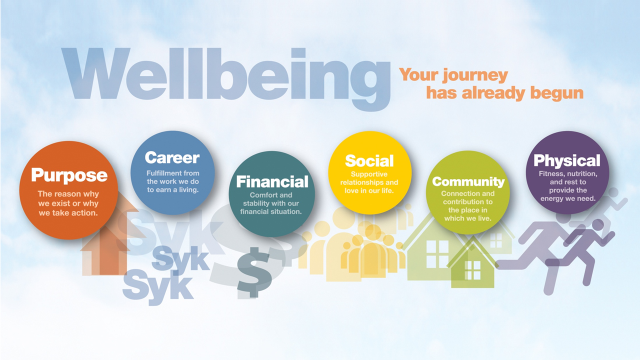The term “culture of health,” as it relates to the workplace, has been around for some time. However, establishing that culture and driving engagement are persisting challenges. Stryker Instruments, named one of the top companies to work for by Glassdoor for the past three years, has been implementing innovative approaches and measures to establish their culture of health and well-being for employees. In a recent Wednesday Webinar with HERO, Paul Terry, president & CEO of HERO, sat down with Ashley Brinn Kletke, a senior manager at Stryker, to discuss these initiatives and how the company has been progressing towards establishing and branding a strong culture of health.
Initially, Stryker noticed that employees did not seem to know how to get engaged in well-being. This may have been due, in part, to changing leadership. So, well-being program planners asked themselves, “What do we want our colleagues to think of when they think of well-being and how do we want leadership to view it?”

©Stryker Instruments, 2015. All Rights Reserved.
Using the above “Wellbeing” model and branding, Stryker worked to institutionalize each of these aspects of well-being to reinforce that it is a journey, not a destination, and to break up a rather vague term into more understandable and accessible components. Kletke pointed out that purpose is the largest branded element because it is foundational to where everyone usually starts; asking oneself “Why am I beginning this journey to well-being?” or “What do I want to accomplish by being healthier?”
Relating to this, we polled our webinar audience and asked if their own companies had well-being offerings in financial, purpose, community, or some combination of the above. We found that 38% offered financial and 23% offered community, but 0% said they had well-being offerings related only to purpose. Kletke’s theory is that purpose is the most ambiguous and difficult aspect of well-being to address, which is why Stryker is working on breaking it down into more familiar pieces so that hopefully, instead of shying away from it, people will begin to lean in and take a greater interest in naming what aspects of their life purpose matter most to them and how those aspects influence their readiness to take action on their unique health and well-being journey.
To view this Webinar featuring Stryker and Ashley Brinn Kletke, go to our Resource Center (members only).
Stryker also created a model of culture progression with six stages: denial, interest, buy-in, experience, accountability and culture-established. According to Kletke, well-being initiatives are often first met with resistance and even denial that changes are needed. After a while, interest grows and employees begin to see that there may be personal and organizational benefits to such programs. After that, employees progress to buying into the science that shows there truly are proven benefit to well-being programs. The tipping point is reached when they begin to experience the benefits in their own lives. This makes employees willing to stand up and be accountable to others, encouraging expanded participation and finally establishing a true culture of health.
Stryker is currently working to develop even greater interest in their program by getting leaders more involved through a “well-being experience” study. It is a ten week study period in which 35 managers applied and volunteered to commit to biometric screening, sleep tracking, self-reporting of productivity and an exercise program. Through this study, Stryker is hoping to gather data, but also to move the culture of health at Stryker into the experience phase of the culture progression model. Through branding, model building, a study and data analysis, Kletke and Stryker are building a far reaching road map to enable greater leadership involvement and employee engagement in countless journeys toward well-being.
